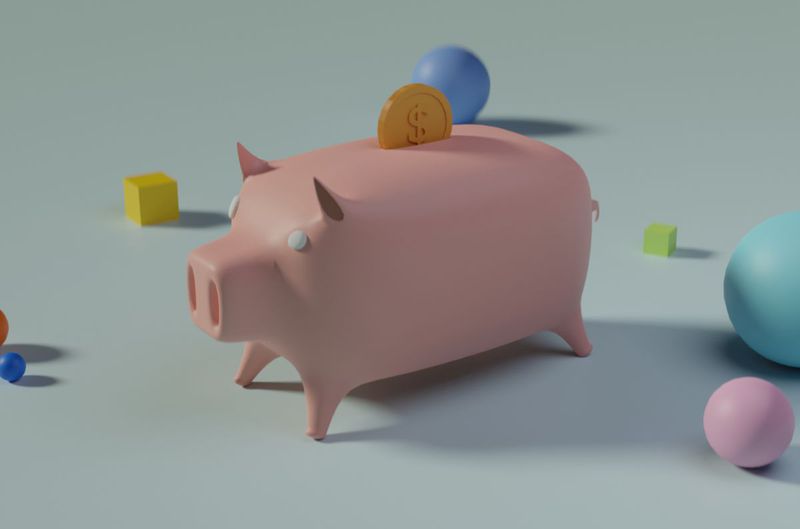
Sterling held steady: Cash-strapped Brits borrow less
The pound Sterling held mostly steady on Wednesday, after data showed British consumers borrowed less than expected in July in response to higher interest rates.

Reuters: The pound Sterling held mostly steady on Wednesday, after data showed British consumers borrowed less than expected in July in response to higher interest rates, while a gauge of housing market was forecast to hit an 11-year low this year.
STERLING HELD STEADY ON WEDNESDAY
Volatility in the currency market remained subdued ahead of key data releases in the United States this week that could give investors a clear steer on what the Federal Reserve might do with interest rates in the coming months. A measure of U.S. consumer inflation on Thursday and the key monthly employment report on Friday could confirm the view that the Fed may be close to the end of its rate-hike cycle.
Sterling, which is heading for its biggest monthly fall against the dollar in six months in August, was up 0.2% at $1.2665 and flat against the euro at 86 pence. The dollar has got a lift this month from evidence that the U.S. economy is proving resilient in the face of higher interest rates and persistent inflation. Sterling has dropped 1.35% so far in August, the most in a month since February’s 2.43% drop. “This morning, GBP/USD is inching lower along with other dollar crosses, although it appears that the pound’s sensitivity to risk sentiment is a bit more limited at this moment,” ING strategist Francesco Pesole said.
ALSO READ: Newspaper front pages from around the world, 31 August 2023
Back in Britain, the Bank of England meets next month to discuss monetary policy. Money markets show traders expect roughly two more 25-basis point rate hikes this year and for rates to peak around 5.8% by March from 5.25% right now. BoE data on Wednesday showed UK consumers increased their borrowing by less than expected in July in a possible sign of caution among households as borrowing costs rise. The pace of growth in consumer credit over the 12 months to July slowed to 7.3%, the smallest increase since December last year.
Meanwhile, a forecast from property website Zoopla offered a downbeat read on the housing market, as the cost of taking out a mortgage rises with interest rates. Consumers have struggled with a cost-of-living crisis, triggered by soaring food and energy prices, which has weighed on their ability to pay for anything from homes to new cars. Wage growth, at 7.8%, is above the headline rate of inflation for the first time since October 2021. Zoopla said the number of house purchases in Britain this year is on course to drop by 21% to its lowest since 2012 as a result of rising borrowing costs.
The BoE data also added to signs of a slowdown in the housing market as mortgage approvals by banks and building societies dropped by more than 5,000 on the month to 49,444, below the Reuters poll forecast of 51,000. “Surging rates and declining demand for loans have already triggered a house price correction in the country,” Pesole said.
ALSO READ: South Africa: Today’s latest news and headlines, Thursday, 31 August 2023
U.S. DOLLAR
Reuters: The euro stood by a 15-year high on the yen on Thursday in anticipation of sticky European inflation figures, while the dollar was squeezed ahead of consumption, inflation and jobs data that could add to evidence of a softening economy. A marginally better-than-expected Chinese manufacturing survey kept the yuan, Australian dollar and New Zealand dollar steady in Asia trade, though all three are set for sizeable monthly drops on worries about China’s economic slowdown.The Aussie traded 0.2% firmer at $0.6485 and the kiwi, down 4% for August, held at $0.5960.
The yuan traded at 7.2895 per dollar for a 2% monthly loss. The euro hovered at $1.0922, after gaining 0.4% on Wednesday when higher-than-expected inflation numbers in Germany and Spain pointed to a hit Europe-wide reading due on Thursday. Traders have priced in an increased chance of a rate hike in Europe next month of about 50-50, and the euro has made a new 15-year high of 159.76 per yen, though analysts think further gains would need substantial improvement in the economy.
“If a weaker dollar is only likely when the signs of slower growth are clear, a stronger euro is only likely when the current gloom about the economy eases,” said Societe Generale strategist Kit Juckes. Sterling, which followed the euro’s gains likewise was firm $1.2723, though both sterling and the euro are also set for monthly drops against the dollar in August.
ALSO READ: Who is the richest person in the world today? Top 10 list – 31 August 2023
Dollar gains have been fuelled by an expectation that interest rates linger longer at elevated levels, but have pared this week on glimpses of cooling spending and hiring in the U.S. The dollar index, while still up more than 1% for August, has fallen 1% for the week so far. U.S. personal consumption data and core PCE – which is the Federal Reserve’s favoured inflation gauge – are due later on Thursday.
Overnight the Commerce Department revised down second-quarter growth to 2.1% from an estimate of 2.4%. U.S. payrolls data is due on Friday and second-tier figures this week such as job openings and private payrolls have pointed to softness. “Job openings have come off very sharply over the last three months,” said Steve Englander, head of G10 FX research at Standard Chartered. “We think this will continue, and there may even be further downward revisions to hires and job openings giving the Fed plenty of reason to sit on its hands.”
Two-year Treasury yields are down about 17 basis points to 4.888% this week and Fed funds futures imply about a 40% chance of a hike by year-end, compared with about 55% at the start of the week. The dollar’s pullback, along with wariness of government intervention, has steadied the yen . It is 2.5% lower on the dollar this month and down 10% for the year, but has found some traction around 146 yen per dollar.
ALSO READ: Young analytical chemist’s journey: DWS bursary
Japanese data was mixed on Thursday, with 6.8% year-on-year growth in retail sales handily beating a forecast of 5.4%, but factory output slumping. A rare strike at a department store in Tokyo foreshadows, perhaps, upward pressure on wages, though division among policymakers suggests a response is a ways off. The dollar last traded at 145.87 yen. Bitcoin, which has surged this week on a court ruling that bolstered prospects for a bitcoin exchange-traded fund, eased a little to $27,251.
SOUTH AFRICAN RAND
Reuters: The South African rand slipped on Wednesday after data showed the country’s private sector credit grew slower than expected and the budget deficit widened. At 1612 GMT, the rand traded at 18.6450 against the dollar, nearly 1% weaker than its previous close. Central bank data showed private sector credit grew 5.87% year-on-year in July, down from 6.25% in June and slower than the 6.21% growth expected by analysts polled by Reuters.
Meanwhile, figures released by the National Treasury showed that South Africa recorded a budget deficit of 143.76 billion rand ($7.75 billion) in July, compared with analysts’ expectation of a deficit of 123.7 billion rand. The rand has been highly volatile since last week’s Jackson Hole Symposium of global central bankers, where Fed Chair Jerome Powell said the U.S. central bank may need to raise interest rates further.
ALSO READ: Who are the richest South Africans in the world today? – 31 August 2023
On the Johannesburg Stock Exchange, the blue-chip Top-40 index closed 0.61% higher. South Africa’s benchmark 2030 government bond was weaker, the yield up 4 basis points at 10.205%.
GLOBAL MARKETS
Reuters: Asian shares were set for the worst month since February, with sentiment hurt by still-gloomy China factory activity, while investors were also cautious ahead of a barrage of U.S. data that could add to bets that interest rates have peaked. MSCI’s broadest index of Asia-Pacific shares outside Japan added 0.1% but was still headed for a monthly loss of 5.9%, the largest since February. Japan’s Nikkei gained 0.5%, bringing its monthly loss to 2%. Data on Thursday showed China’s manufacturing activity contracted for a fifth straight month in August, and the expansion in services sector lost a little momentum.
Chinese blue-chips were flat but a 2.5% rebound in property stocks boosted Hong Kong’s Hang Seng Index, which rose 0.7%. Two of China’s biggest cities on Wednesday eased mortgage curbs, allowing home buyers to enjoy preferential loans for first-home purchases regardless of their previous credit record. However, concerns remain, with China’s largest private property developer Country Garden warning of default risks if its financial performance continues to deteriorate, after posting a record first half loss.
ALSO READ: WATCH: DA is against Eskom’s demand for R24 billion [VIDEO]
Barring the China gloom, investor confidence jumped in August, with a global confidence index from State Street Global Markets surging 11.4 points to 107.7, led by North America which recorded the strongest reading in a year on easing recession fears. “Investor confidence saw its biggest jump in 18 months, with the Global ICI now solidly in risk-seeking territory, as risk appetite improved in every region this month,” said Marvin Loh, senior global macro strategist at State Street Global Markets.
Overnight, Wall Street rose after a slew of U.S. economic indicators generally surprised to the downside, adding to bets that the Federal Reserve is done tightening and rate cuts next year could amount to more than 100 basis points. Private payrolls clocked a 52.3% monthly drop, adding to signs of a softening in the labour market, while second-quarter GDP was revised lower. Attention now turns to inflation numbers as measured by the U.S. personal consumption expenditures (PCE) on Thursday – the Federal Reserve’s preferred gauge of inflation – and non-farm payrolls on Friday.
Action in the Treasuries market was muted. Two-year yields stood at 4.8901% on Thursday, after briefly dipping to a three-week low of 4.8360% overnight. Ten-year yields held at 4.1178%, having also ended the session flat. There was less cheer in Europe on the inflation front. Annual inflation in Germany and Spain barely slowed in August, against expectations, raising the stakes for the europe-wide inflation numbers later in the day.
ALSO READ: Anti-UN protests leave at least ten dead in DR Congo
Bets that the European Central Bank will have to hike in September saw the euro surge on the yen, hitting a 15-year high of 159.76 yen overnight. It last hovered at 159.61 yen on Thursday. Oil prices were mostly flat. Brent crude futures were little changed at $85.88 per barrel and U.S. West Texas Intermediate crude futures were up 0.1% at $81.74. The gold price was 0.3% higher at $1,94.35 per ounce.
